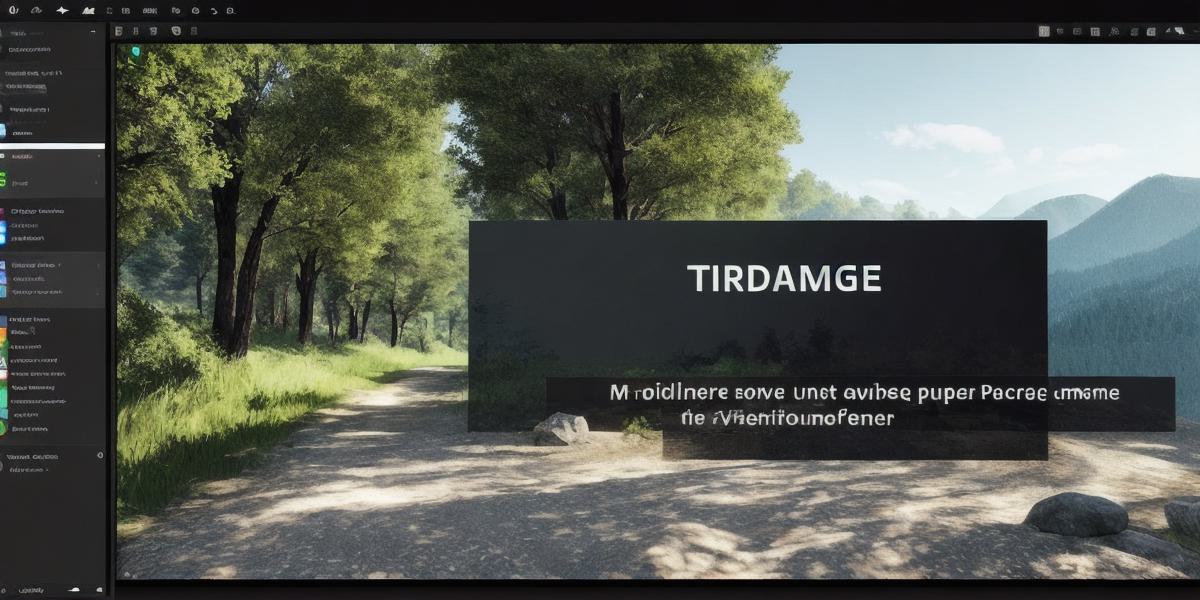Unreal Engine is a powerful game engine that has gained popularity among web3 developers for its ability to create immersive and realistic experiences. However, running this software requires significant computing power, so it’s important to ensure that your computer meets the requirements before diving into development. In this article, we’ll explore the minimum specifications required by Unreal Engine and provide you with guidance on how to check if your computer is ready for action.
Minimum Specifications
The minimum specifications needed to run Unreal Engine are:
- Processor: Intel Core i5-7500U or AMD FX-8350
- Graphics card: NVIDIA GeForce GTX 960 2GB or AMD Radeon RX 280 4GB
- RAM: 8GB or more
- Storage: SSD with at least 10 GB free space
While these are the minimum requirements, it’s important to note that running Unreal Engine smoothly requires significantly more power. For instance, a high-end gaming PC with an Intel Core i9 processor, NVIDIA GeForce RTX 2080 graphics card, 16GB of RAM, and an SSD with at least 512GB free space is recommended for smooth performance.
Checking Your Computer’s Specifications
To determine if your computer meets the minimum requirements for Unreal Engine, you can use the following steps:
- Open the Start menu and type "Control Panel." Click on it to open.
- In the Control Panel, click on "System and Security," then click on "System."
- Under the "System Information" section, locate the "Processor," "Memory," and "Storage" sections. Note down their specifications.
- Next, download and install a free graphics card benchmarking tool such as MSI Afterburner or GPU-Z. These tools will allow you to check your graphics card’s performance.
- Run the graphics card benchmarking tool and note down the graphics card’s VRAM (Video Random Access Memory) and clock speed.
- Finally, compare your computer’s specifications with the minimum requirements for Unreal Engine. If they meet or exceed the minimum requirements, then your computer is ready to run Unreal Engine.
FAQs
- What if my computer doesn’t meet the minimum requirements?
If your computer doesn’t meet the minimum requirements, you may experience slow performance, crashes, or even failure to launch Unreal Engine. In this case, it’s recommended to upgrade your computer’s hardware or invest in a more powerful PC specifically designed for gaming and development. - Can I run Unreal Engine on a laptop?
Yes, you can run Unreal Engine on a laptop, but the specifications required may vary depending on the laptop’s hardware. It’s important to check your laptop’s specifications and compare them with the minimum requirements for Unreal Engine before attempting to run it. - Can I run Unreal Engine without an SSD?
No, Unreal Engine requires an SSD to function properly. An SSD provides faster read and write speeds than a traditional hard drive, which is crucial for smooth performance when running Unreal Engine.
Conclusion
Running Unreal Engine requires significant computing power, so it’s important to ensure that your computer meets the minimum specifications before diving into development. By following the steps outlined in this article and comparing your computer’s specifications with the minimum requirements for Unreal Engine, you can determine if your computer is ready to run this powerful game engine. Remember, upgrading your hardware or investing in a more powerful PC specifically designed for gaming and development may be necessary if your computer doesn’t meet the minimum requirements.
